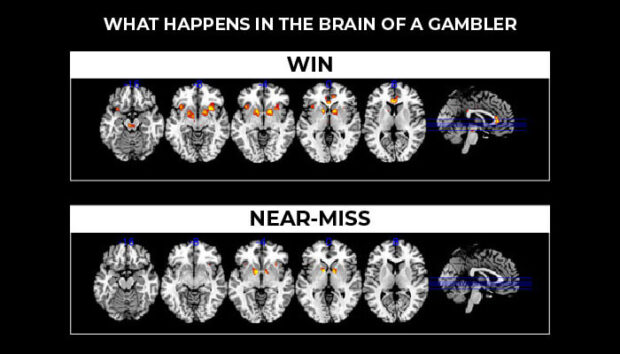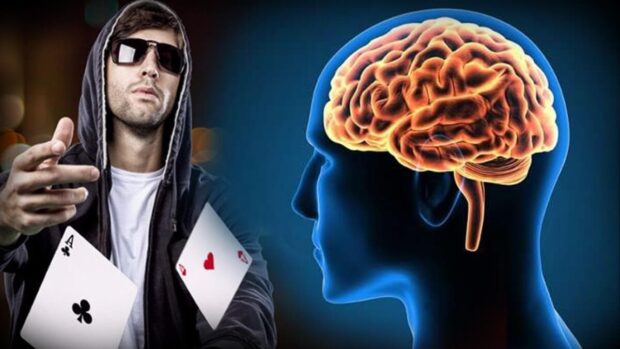Gambling is a fun and exciting pastime, but it can also have serious consequences for your brain. There are a few key ways that gambling can affect your brain:
- Gambling can lead to an increase in stress levels. When you’re constantly worried about whether or not you’re going to win, it can lead to increased levels of stress in your life. This can have negative effects on your mental health and even your physical health.
- Gambling can also increase your risk of developing addiction. Addicted gamblers often feel a strong need to gamble in order to feel the same level of pleasure that they experienced when they were gambling initially. This can be very harmful to your mental and physical health.
- Gambling can change the way your brain functions. When you gamble, you’re usually playing with money that is meant for other purposes (like spending on groceries or paying bills). This means that your brain is constantly processing different financial decisions. This may have long-term consequences for your ability to make sound financial decisions in the future.
There are a number of ways that gambling can have negative effects on your brain. It’s important to be aware of these risks so that you can make the best decisions for your own health and well-being.
Types of Online Casinos

Gambling has been around for centuries, and it is one of the oldest forms of entertainment. There are many different types of online casinos, and they can be found in a variety of locations. Some online casinos offer live casino, while others specialize in video Poker or Roulette. Regardless of the type of casino, there are some general rules that apply to all types.
One important thing to remember about online gambling is that it is a risk-reward activity. The potential rewards are great, but so are the risks. If you don’t have any money saved up, then you should not attempt to play at an online casino. Even if you do have some money saved up, it’s still a good idea to play with a small amount first to make sure you’re comfortable with the game and don’t lose too much money.
Most people who gamble lose money at some point, but there are also people who become addicted to the thrill of gambling and end up losing a lot more money than they originally intended. If you’re thinking about playing at an online casino, it’s important to weigh the potential rewards against the potential risks before making a decision.
Online Gambling

There are many reputable online gambling sites that offer a variety of games and options for players. Some of the most popular sites include Bovada, William Hill, and PokerStars. Each site offers different games and bonus opportunities, so it is important to carefully compare each one before making a decision. Online scratch cards games are a great way to pass the time and improve your skills. Many of these games are available through online casinos, but you can also find many scratch card games for free. The important thing is to find a game that you enjoy and that will challenge you.
Some of the most common concerns about online gambling include security and payment processing. All of the major online gambling sites use highly secure SSL encryption to protect player data and transactions. They also have well-funded payment processing systems that are capable of handling large cash deposits and withdrawals.
The Effects of Gambling on the Brain

When you gamble, you are putting your money on the line in hopes of winning. This type of risk-taking can be addictive, which is why gambling can be harmful to your brain. Gambling can lead to addiction and other mental health problems, including depression and anxiety.
One of the ways gambling affects your brain is by increasing your levels of stress hormones like cortisol. Cortisol is responsible for helping your body deal with stress, but when cortisol levels are high, it can have negative effects on your brain. For example, cortisol can damage cells in the hippocampus, which is important for memory and navigation skills. Additionally, gambling can increase your risk of developing problems like bipolar disorder or schizophrenia.
The good news is that there are things you can do to protect yourself from the negative effects of gambling.
– First, make sure you understand the risks involved.
– Then, try to limit your exposure to gambling ads and other promotional material.
– Finally, try to get help if you find yourself struggling with gambling addiction. There are resources available to help you through this difficult process.
The Dangers of Gambling on the Brain

Gamblers are often considered to have high levels of dopamine in their brains, which is associated with reward and pleasure. In fact, some studies suggest that people who gamble are more likely to develop problems with impulse control and addiction. This is because gambling involves constantly experiencing the rush of winning or losing, which can lead to cravings and a need for more stimulation.
– One study found that people who gamble regularly were two and a half times more likely to have symptoms of pathological gambling than those who didn’t gamble. Pathological gambling is a clinical condition that includes excessive gambling, preoccupation with gaming, withdrawal when unable to gamble, and distorted thoughts or images about gaming.
– Other studies have shown that gamblers have lower levels of serotonin in their brains. Serotonin is a neurotransmitter that helps regulate moods and emotions. Low levels of serotonin are linked with problems like anxiety, depression, and addiction. This is because gambling can create an intense cycle in which people start out by losing money and then feel desperate to win back what they’ve lost. This desperation can lead them to gamble more recklessly, which only makes matters worse.
Conclusion
Gambling can have a significant impact on the brain, both short- and long-term. This article will explore some of the short-term effects of gambling, as well as the long-term implications that can be caused by compulsive gambling. Whether you are just starting to gamble for fun or are struggling with addiction, it is important to understand how your brain is affected by gambling so that you can make informed decisions about your future.




